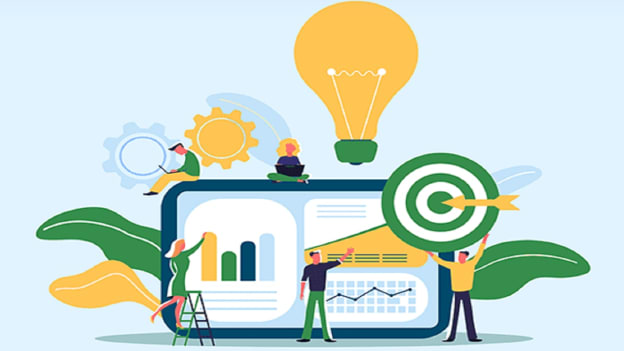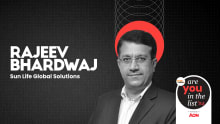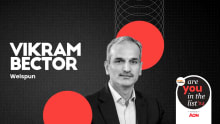Navigating a data-driven world with IIMB’s HR Analytics Program

Given the rising importance of HR technology in a workspace dominated by flexible and remote working, a key skill that all HR professionals must now inculcate is the analysis of data and how it can serve as a medium to to take advantage of the new trends in workforce and re-imagine the future of an organisation. When it comes to upskilling individual capability and the credibility of the function, HR leaders need to adopt a data-driven approach to people decisions. The opportunity is there to leverage this in every domain of HR functions because the future is workplace analytics. Conventionally, the analysis of data used to be carried out by experts in the field, but now savvy HR professionals understand that it is imperative to become both the domain and data experts within their teams.
A tech savvy data-driven HR is crucial to cater to the needs of talent management and to provide optimal, predictive and prescriptive strategies that add value to the organisation.
Moreover, people analytics is now found at the center of HR and is a core component of workforce strategy, digital transformation and efforts to improve employee experience. HR with the use of this data can work directly with employees to co-create HR programs that drive personalization in areas such as onboarding, learning and career paths within an organization. This in itself involves a shift from the ‘one size fits all’ HR programs of the past and offers a space for innovation and is uniquely oriented to what drives employee engagement best within said organisation.
The pandemic has introduced certain key universal concerns for organisations which include strategic planning, leadership, diversity and inclusion, employee experience, employee productivity, and rightskilling, upskilling and re-skilling. An introduction to the world of people analytics is crucial for measuring the development as well as revising and devising strategies for ensuring good results in each of these fields. It is only when the HR is invested in this process that the right insights can be picked from the mass of data available and can be translated into solutions in a world marked and impacted by digital transformation. The HR function is ripe with rich data, which needs to be mined to drive organizational value. Understanding the hidden nuggets in the data of recruitment, onboarding, performance management,employee engagement, to the more complicated processes of creating belonging and building an employer brand opens tremendous vistas for value creating opportunities for organizations.
An in-depth understanding of workplace analytics and the immense potential it holds to stream in benefits for talent management and for securing a positive future for the organisation can be attained. To enable leaders to gain this certification and get a seat at the table for building their organisation’s successful future, Indian Institute of Management, Bangalore brings you the course Certificate Programme in Human Resource (HR) Analytics, designed for middle and senior HR leaders having an experience of 4 or more years, kickstarting from 18th September, 2021.
Primarily delivered in a hybrid format with leaders in attendance divided into physical and virtual cohorts, this course is designed to help participants’ expand their understanding of workforce analytics and simultaneously its application in adding value to the organisation. They will be guided under the leadership of Dr. U Dinesh Kumar and Dr. Debolina Dutta.
Kumar is a Professor of Decision Sciences and Chairperson of Data Centre and Analytics Lab (DCAL) at IIM Bangalore and holds a Ph.D. in Mathematics from IIT Bombay. Along with conducting corporate training in analytics of more than 1000 professionals, he has also carried out predictive and prescriptive analytics consulting projects for a number of organizations such as The Boston Consulting Group (India) Private Limited, Hindustan Aeronautics Limited, Qatar Airways, Mission Hospital, Manipal Hospitals, Scalene Works, Wipro Limited, UNIBIC and the World Health Organization to name a few.
Dutta who is an alumnus of IIM Indore and IIM Bangalore had her last assignment with Schneider-Luminous as VP-HR, Admin,and CSR. She has in-depth experience across all facets of HR functions across multiple locations, cultures, and organizations and is also an ACC-level ICF certified executive coach, with multiple certifications in the facilitation of behavioral training and psychometric tools. She has extensively used data analytics in all dimensions of her work. Her industry experience covers heavy engineering and electrical switchgear, IT software services, alcobev, and apparel retail.
Having prioritised the learning of workforce analytics with HR domain understanding through action learning projects to aid in the process of value addition for organisations, this course is broken down into seven modules, with the final one focused on presentation of key learnings:
- Introduction to HR analytics: Learning about the future of work and the importance of application of analytics in HR.
- Foundations of data science: Understanding the basics of probability, random variables, sampling estimation and hypothesis testing. Understanding these basic blocks of analytics does not require deep mathematical knowledge, but provides an opportunity to understand the different types of data and how to handle them with easily available tools.
- Storytelling through data: Numbers may not speak by themselves, but weaving the data insights with domain and context understanding makes the data come alive. Knowing the ins and outs of data visualisation helps to effectively communicate data insights to management and other stakeholders.
- Predictive and prescriptive analytics: Studying machine learning and operations research techniques to analyse talent management problems. Supervised learning algorithms, decision tree learning, ensemble methods and prescriptive analytics techniques will be the core concepts.
- Application of analytics to HR data: Discussion of data in recruitment, performance management, learning and development, total rewards, employee engagement, attrition, employee productivity, organisational network analysis etc is explored through multiple data sources. An exposure to the emerging technologies of big data, AI, ML and NLP in various functions of HR also helps participant explore and leverage the opportunities of these trends in their organizations.
- Machine learning using Python: An optional module for gaining insights into the basics of python language and simple plus advanced machine learning concepts for exploring, building, evaluating and analyzing machine learning models.
A data driven world is the future which is why it is essential that HR leaders who play a key role in the relationship between people and work understand the role analytics plays in people management. They can devise predictive and prescriptive strategic recommendations only if they understand the principles of data preparation and its collections along with being well versed in emerging HR Tech trends including but not limited to artificial intelligence (AI), machine learning (ML), operations research techniques and other deep learning algorithms. The right choices can be made only with the right insights to deliver the right results. Whether it is acquiring the right talent, ensuring a smooth transition to remote working or even overturning the tide of resignations by improving upon employee experience and building organisational culture, the way forward is with HR analytics. It is only with concrete data that HR leaders can make the calls and drive greater action for the benefit of their organisations as well as create metrics for success and deliver their brand through storytelling and uncover any biases that may remain in the operations carried out.
If you’re an HR leader who wants to learn how to build predictive HR models to solve people function issues, reduce risk, uncover new opportunities, increase your organizations’ profitability and gain a competitive advantage, click here to learn more about IIMB’s course on Human Resource Analytics.










